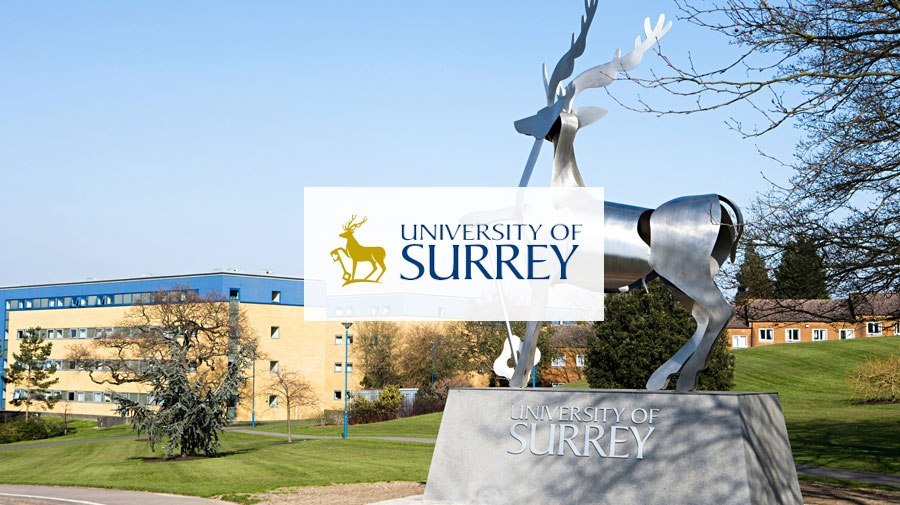Linguistics PhD
Why choose this course
The School of Literature and Languages is internationally regarded and our research takes a strong multi-disciplinary approach, and covers languages and linguistic settings all over the world.
Most of our research in theoretical and applied linguistics focuses on the consequences of linguistic diversity. Our postgraduate research looks at the grammatical structure of languages and the ways in which language-related research can have practical applications, with applied linguistics research considering topics such as multiculturalism and mobility, multilingual practices in business and educational contexts, intercultural pragmatics, second and foreign language learning and teaching, lexicography and corpus linguistics.
We’re also home to the Surrey Morphology Group, a linguistics research centre that focuses on theoretical morphology, morphological interfaces, linguistic typology, and documenting and describing languages.
We’ve been awarded over £2m in external funding since 2012, with funding coming from the European Research Council, the Economic and Social Research Council, the Arts and Humanities Research Council, the British Academy and the Leverhulme Trust, among others. We’re part of a number of externally funded doctoral training partnerships, and you might be able to benefit from a studentship from us if you’re suitable qualified.
What you will study
It normally takes three-years of full-time study or six years of part-time study to complete our PhD in Linguistics. You’ll take a confirmation viva at 12-15 months (or 24-30 months part-time) and then be assessed by a thesis and viva examination.
You’ll be assigned two supervisors, who you’ll meet with monthly to discuss your progress. Your supervisors will guide you through your PhD, and will give you feedback and advice on your work.
As a doctoral student in the School of Literatures and Languages, you’ll receive a structured training programme covering the practical aspects of being a researcher, including grant writing, publishing in journals, and applying for academic jobs.
Research support
The professional development of postgraduate researchers is supported by the Doctoral College, which provides training in essential skills through its Researcher Development Programme of workshops, mentoring and coaching. A dedicated postgraduate Careers and Employability team will help you prepare for a successful career after the completion of your Ph.D.
Research themes
Theoretical linguistics
- Theoretical morphology (including Network Morphology and Paradigm Function Morphology)
- Morphological interfaces
- Linguistic typology (including Canonical Typology)
- Language documentation and description (including Austronesian, Nakh-Daghestanian, Niger-Congo, Nilo-Saharan, Oto-Manguean, Papuan, Slavonic, Tibeto-Burman languages).
Applied linguistics
- Intercultural communication in commercial and educational settings
- Interlanguage/intercultural pragmatics
- Face management and (im)politeness
- Ethnolinguistic minorities
- Language ideologies and practices in transnational areas
- Corpora and language learning
- Corpus-based lexicography
- TESOL/SLA (topics focusing on classroom interaction, spoken language use and development, teacher training)
- Oracy skills in higher education
- Linguistic issues emerging from internationalisation.
Intakes
- Oct
Application Processing Time in Days: 20
Minimum English Language Requirements
| English Level Description | IELTS (1.0 -9.0) | TOEFL IBT (0-120) | TOEFL CBT (0-300) | PTE (10-90) | |
|---|---|---|---|---|---|
| Expert | 9 | 120 | 297-300 | 86-90 | |
| Very Good | 8.5 | 115-119 | 280-293 | 83-86 | |
| Very Good | 8 | 110-114 | 270-280 | 79-83 | |
| Good | 7.5 | 102-109 | 253-267 | 73-79 | |
| Good | 7 | 94-101 | 240-253 | 65-73 | |
| Competent | 6.5 | 79-93 | 213-233 | 58-65 | |
| Competent | 6 | 60-78 | 170-210 | 50-58 | |
| Modest | 5.5 | 46-59 | 133-210 | 43-50 | |
| Modest | 5 | 35-45 | 107-133 | 36-43 | |
| Limited | 4 | 32-34 | 97-103 | 30-36 | |
| Extremely Limited | < 4 | < 31 | < 93 | < 30 |
Admission Requirement / Eligibility Criteria
Applicants are expected to hold a good first degree (a minimum 2:1 or equivalent) and an MA in a topic relevant to Linguistics or Applied Linguistics. In exceptional cases, students with a good first degree will be considered.
- Course Type: Full Time
- Course Level: Doctoral Degree/PhD
- Duration: 04 Year
-
Total Tuition Fee:
68000 GBP
Annual Cost of Living: 9207 GBP
Application Fee: N/A
Similar Programs
- Translation and Interpreting PhD at University of Surrey
- Translation and Interpreting PhD at University of Surrey
- Translation and Interpreting PhD at University of Surrey
- Translation and Interpreting PhD at University of Surrey
- Linguistics PhD at University of Surrey
- Linguistics PhD at University of Surrey

